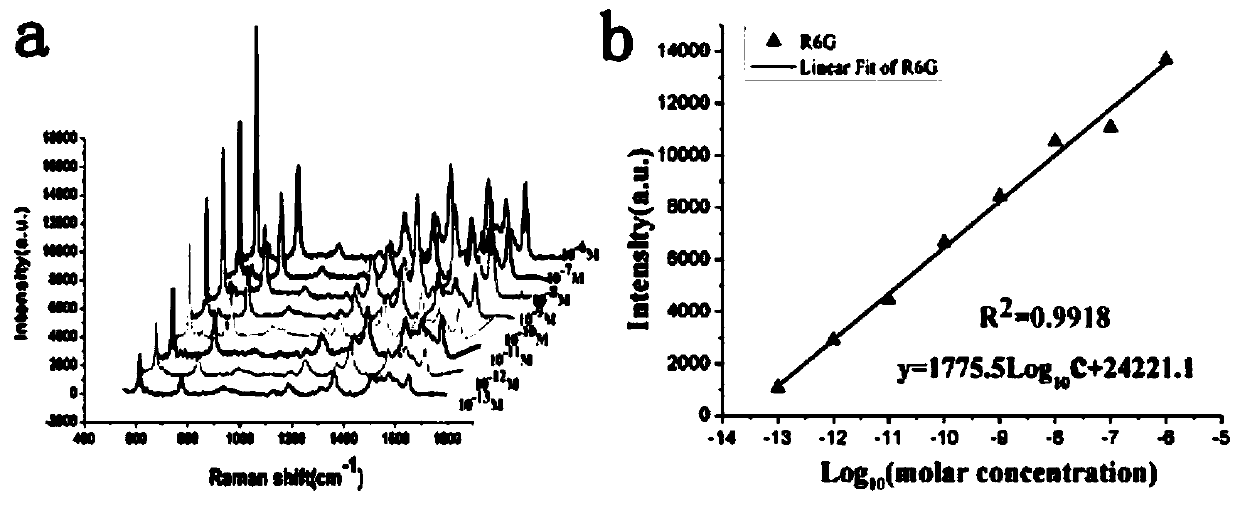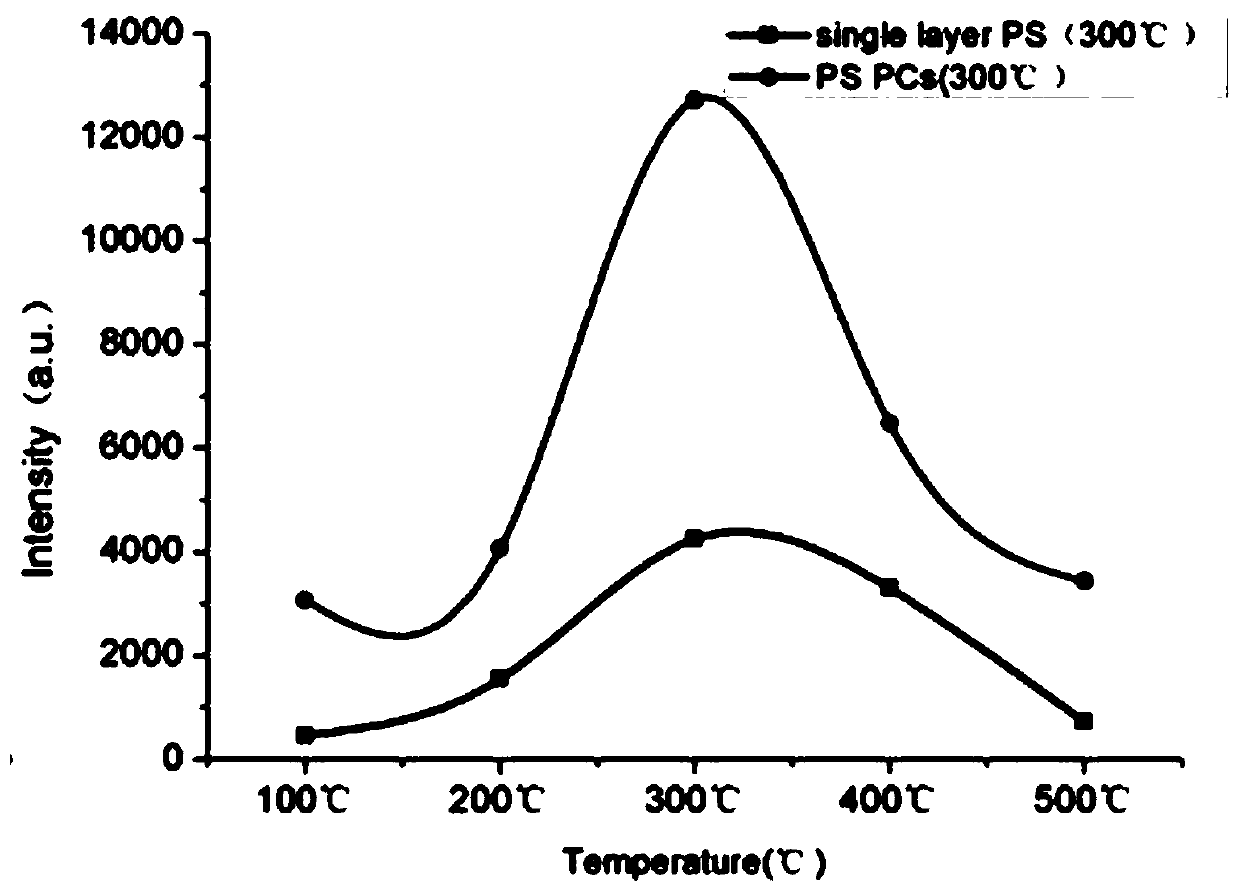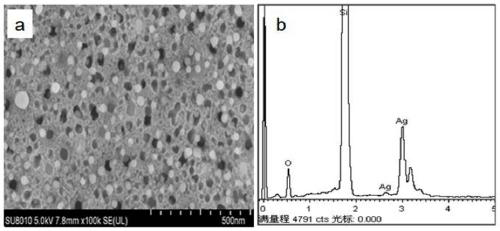Preparation method for biological detection chip for silver-porous silicon-based surface enhanced Raman scattering
A surface-enhanced Raman, porous silicon-based technology, applied in Raman scattering, nanotechnology for materials and surface science, measurement devices, etc., can solve the problems of restricting wide application, complicated preparation process, short shelf life, etc., to achieve Highly enhanced Raman signal capability, good repeatability and shelf life, and stable properties
- Summary
- Abstract
- Description
- Claims
- Application Information
AI Technical Summary
Problems solved by technology
Method used
Image
Examples
Embodiment 1
[0061] The specific operation steps are as follows:
[0062] (1) N-type silicon wafer pretreatment: first boil 10min with mixed solution 1, then boil with mixed solution 2 for 10min, and then use CH with a mass fraction of 99.5% 3 COCH 3 Ultrasonic cleaning for 15 minutes, and finally ultrasonic cleaning with deionized water for 15 minutes.
[0063] Mixture 1 consists of H 2 O, H 2 o 2 and NH with a mass fraction of 28% 3 ·H 2 O is composed according to the volume ratio of 5:1:1;
[0064] Mixture 2 consists of H 2 O, H 2 o 2 and HCl with a mass fraction of 38% according to the volume ratio of 6:2:1.
[0065] (2) take the metal Pt sheet as the cathode, and the silicon sheet obtained by the pretreatment in the step (1) is the anode, and the distance between the two electrodes is 7cm, placed in the HF and C 3 h 5 OH in a mixed solution with a volume ratio of 1:1 for electrochemical anodic corrosion to obtain a multilayer Bragg porous silicon substrate.
[0066] Elect...
Embodiment 2
[0070] The application of the silver-porous silicon-based surface-enhanced Raman scattering biological detection chip prepared in Example 1 in the Raman signal amplification of rhodamine 6G, and the application of the Raman characteristic peak amplification in the serum of breast cancer patients, specifically Including the following steps:
[0071] Configure the concentration as 10 respectively -6 , 10 -7 , 10 -8 , 10 -9 , 10 -10 , 10 -11 , 10 -12 , 10 -13 Each mol / L rhodamine 6G solution was 50ml, and the silver-porous silicon-based surface-enhanced Raman scattering biological detection chip was put into the solution for 3 hours and then taken out. SERS spectra were obtained using a HORIBA Raman microspectrometer (HORIBA Jobin Yvon, Kyoto, Japan) equipped with a 50 mW Nd:YAG laser with 532 nm light and a He–Ne laser with 633 nm light as excitation radiation.
[0072] In order to avoid the sample heating effect, a low laser power of 2.5 mW was used, and the diameter of...
PUM
 Login to View More
Login to View More Abstract
Description
Claims
Application Information
 Login to View More
Login to View More - R&D
- Intellectual Property
- Life Sciences
- Materials
- Tech Scout
- Unparalleled Data Quality
- Higher Quality Content
- 60% Fewer Hallucinations
Browse by: Latest US Patents, China's latest patents, Technical Efficacy Thesaurus, Application Domain, Technology Topic, Popular Technical Reports.
© 2025 PatSnap. All rights reserved.Legal|Privacy policy|Modern Slavery Act Transparency Statement|Sitemap|About US| Contact US: help@patsnap.com



